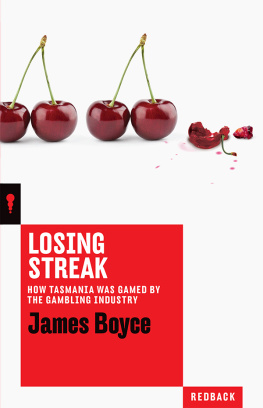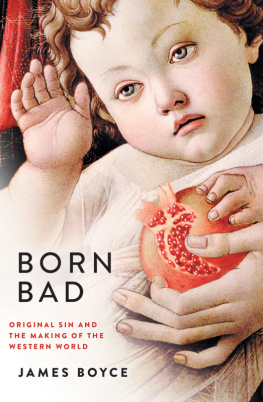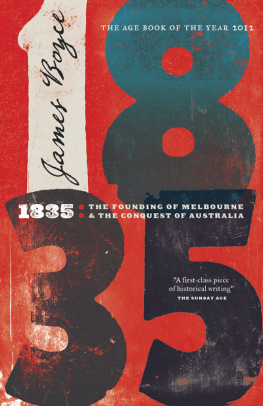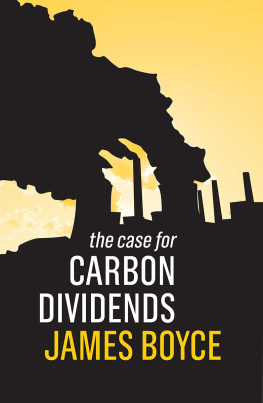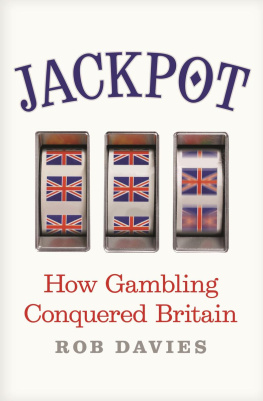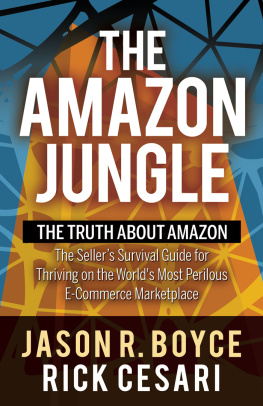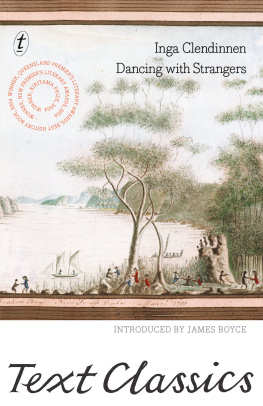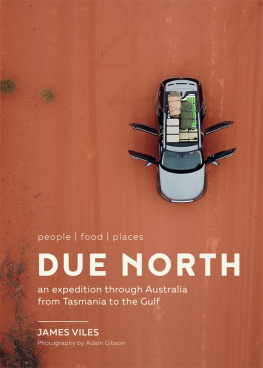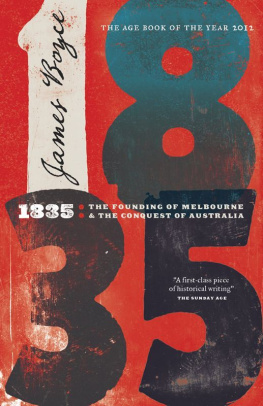Published by Redback,
an imprint of Schwartz Publishing Pty Ltd
Level 1, 221 Drummond Street
Carlton VIC 3053, Australia
www.blackincbooks.com.au
Copyright James Boyce 2017
James Boyce asserts his right to be known as the author of this work.
ALL RIGHTS RESERVED.
No part of this publication may be reproduced, stored in a retrieval system, or transmitted in any form by any means electronic, mechanical, photocopying, recording or otherwise without the prior consent of the publishers.
National Library of Australia Cataloguing-in-Publication entry:
Boyce, James, author.
Losing streak: how Tasmania was gamed by the gambling industry /
James Boyce.
9781863959100 (paperback)
9781925435528 (ebook)
Slot machinesLicencesTasmania.
GamblingSocial aspectsTasmania.
GamblingEconomic aspectsTasmania.
GamblingGovernment policyTasmania.
Political corruptionTasmania.
DemocracyTasmania.
Cover design by Peter Long
Cover photographs: Shutterstock and Olaf Kowalzik/Alamy
Typesetting by Tristan Main
AUTHORS NOTE
Losing Streak relies almost solely on publicly available documents. I have avoided seeking meetings with participants because of the difficulty of verifying claims and the bias that is associated with interviewing some people but not others. The book is based on information that can be checked by anyone, with the guidance of the professional staff of the Tasmanian Archive and Heritage Office and the Tasmanian Parliamentary Library.
The only exception is when I refer to meetings or correspondence that relate to my own role in the history of pokies in Tasmania. Between 1998 and 2000, I was the manager of social action and research at Anglicare Tasmania, where I was responsible for gambling research and advocacy. I did some consultancy work on the poker machine issue for seven years after this. Since finishing all paid work in this field, I have continued to be intermittently involved as a concerned citizen, prone to penning the occasional letter, essay or opinion piece especially in relation to the 2003 pokies contract.
It should be noted that researching this history was made more difficult by the fact that Tasmania did not have a Hansard until 1979. As a substitute, the Hobart-based daily newspaper the Mercury was contracted to produce a summary of the previous days parliamentary proceedings. These are referenced as Mercury Reprints.
Readers should also be aware that the raft of gambling entities owned by the Farrell family as part of their private company, Mulawa Holdings, has been known by different names over the past fifty years. Tasmanians most often call the company Federal Hotels. To refer separately to all the different arms of Mulawa Holdings, and to keep up with every name change, would cause confusion. I therefore usually stay with the term favoured in the community. The company currently calls itself the Federal Group.
Another potential source of misunderstanding is that the two members of the Farrell family who were most involved in running the company had the same name. Unless clarity demands using the cumbersome senior and junior, references to Greg Farrell up to the early 1990s relate to the father and subsequently to his son.
Responsibility for the creation and contents of this book is mine alone. I am, however, grateful to Lindsay Tuffin, the founder and editor of Tasmanian Times, who published my first pieces on the subject, and to four wise and generous readers who commented on an early draft of the book with care and insight. Like all Tasmanians, I also owe a debt to John Lawrence, whose financial analysis has contributed so much to public debate.
The editing of this work was undertaken by Chris Feik and Rebecca Bauert. This brilliant duo from Black Inc. not only turned an over-blown manuscript into a book but provided solidarity along the way. My hope is that Losing Streak will become another example of how their fine publishing houses commitment to resourcing the national conversation is helping create a more compassionate country.
James Boyce
Hobart, November 2016
FOREWORD
O n almost every index, Tasmania is the most disadvantaged state in Australia. The economist Saul Eslake has recently established that Tasmanians are older, sicker, affected more by disability, less likely to have a job, earning less (if employed) and having less by way of real or financial assets than other Australians. His Tasmania Report found that the island state has greater concentrations of social and economic disadvantage than any other State or Territory, with gross household incomes about a third less than the national average.
Among the poorest of its poor are the more than 8000 people whose gambling is causing adverse consequences to them and their families.
About 85 per cent of all the money lost by problem gamblers is through addiction to the worlds most dangerous form of poker machine. In other words, pokie addicts are not just customers of Tasmanias gambling industry; they are its core business.
The states treasurer, Peter Gutwein, has claimed that the most recent government-commissioned study found that the rate of problem gambling in Tasmania has fallen by over 25 per cent. He suggested that this evidence should temper emotions flaring in the debate around poker machines.
Problem-gambling statistics are not like the impersonal economic indices that all treasurers are inclined to interpret in the best possible light. Every person with a gambling problem is an individual in pain. After decades of research, there is no longer any doubt that poker machine addicts are more likely to commit crime, suffer depression, anxiety and other mental-health problems, encounter relationship difficulties, become homeless, lose contact with loved ones, and endure financial hardship. Their partners, parents and children are locked in lives of desperation because of their addiction. Significant numbers of these constituents have been brave enough to tell their heart-wrenching stories to MPs. There is no evidence that Peter Gutwein is a habitual liar or heartless cynic. Why, then, would he mislead the community about the extent of this suffering?
The most obvious answer is that his line supports the governments entrenched policy. Tasmania is the only state with a single pokies licence, and the contract is due to expire in 2018. The treasurer even before a parliamentary inquiry began looking into this issue has announced that there will be no change to the number and location of poker machines.
What is not so easy to explain is why the government is so resistant to change. Every poker machine in Tasmania is owned by Federal Hotels, a Sydney-based company fully owned by one family (who have become, on the back of this monopoly, one of the richest in the nation). This means that no other state has so few losers and so many potential winners from pursuing reform. Beneficiaries would include the majority of hotels and clubs. Nor is this a state government that is addicted to pokies revenue. The terms of the remarkably generous pokies contract with Federal Hotels mean that not even the harshest critic could claim that gambling policy has been driven by a commitment to maximise financial return.
This once-in-a-generation opportunity to remove poker machines from the community also enjoys overwhelming popular support. When the Tasmanian parliament moved to legalise poker machines in hotels in 1993, opposition was so high that even Tattersalls, after conducting polling, became nervous about returning to the state where it was founded. Numerous polls have confirmed that public opinion has not changed since.


